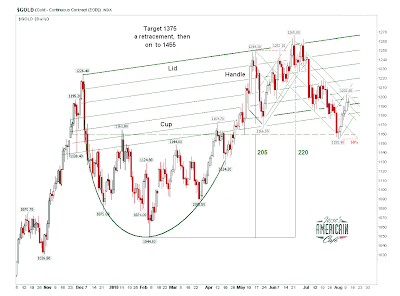The recovery in employment has clearly faltered.
The most positive spin that can be put on it is that the rise and dip was caused by the secular hiring in census workers. But that removes the big increase, and leaves one with no recovery yet at all. Which is roughly the same thing as a recovery and a resumption, a dip.
Here is a comparison of the Seasonally Adjusted and the Raw Numbers
When the distortion of the imaginary jobs added and occasionally subtracted by the BLS 'Birth Death Model' are removed, the lack of recovery is made more clear. If one were to also subtract the temporary census workers which are the cause of that spike higher, the lack of recovery is even more apparent.
Here is the detail on the current shenanigans in the Birth Death Model. As previously discussed, the BLS shows dips in the imaginary jobs numbers around the big seasonality events in January and July. Since these birth-death jobs are added to the non-seasonalized raw number, the big seasonal adjustment blunts, if not largely negates, their impact.
But considering that the economy has undergone a sea change, an epic collapse in a credit bubble, the regularity of this metric should remove any doubts that it is at best largely 'a plug,' and at worst a means of distorting the numbers in the short term to make them look better.
Does this lack of recovery mean that stimulus has not had an effect? No. The results could have been much worse, and very likely would have been if the government had done nothing.
But it also shows that the actions have not had traction, are not yet creating jobs. Why should that surprise us? Subtracting out the bubble jobs in housing and servicing the financial frauds in mortgages, job growth in the US, and confirmed by the median wage, has been anemic for a long time.
This is what is called a structural problem. It is a problem that was caused by government policy decisions in deregulation, largely one sided free trade agreements trading jobs for cheap good and corporate profits, decisions that favored offshoring and importation, lack of a coherent immigration policy, taxation subsidies for the wealthy, lack of regulatory oversight, and an industrial policy of decline in favor of 'service jobs' that could be more properly be called 'servant jobs.'
What would we expect from a restoration of the status quo that does not include bubbles? A stagnating economy most likely at least from a wage and jobs perspective, with increasing disparity in income distribution.










































